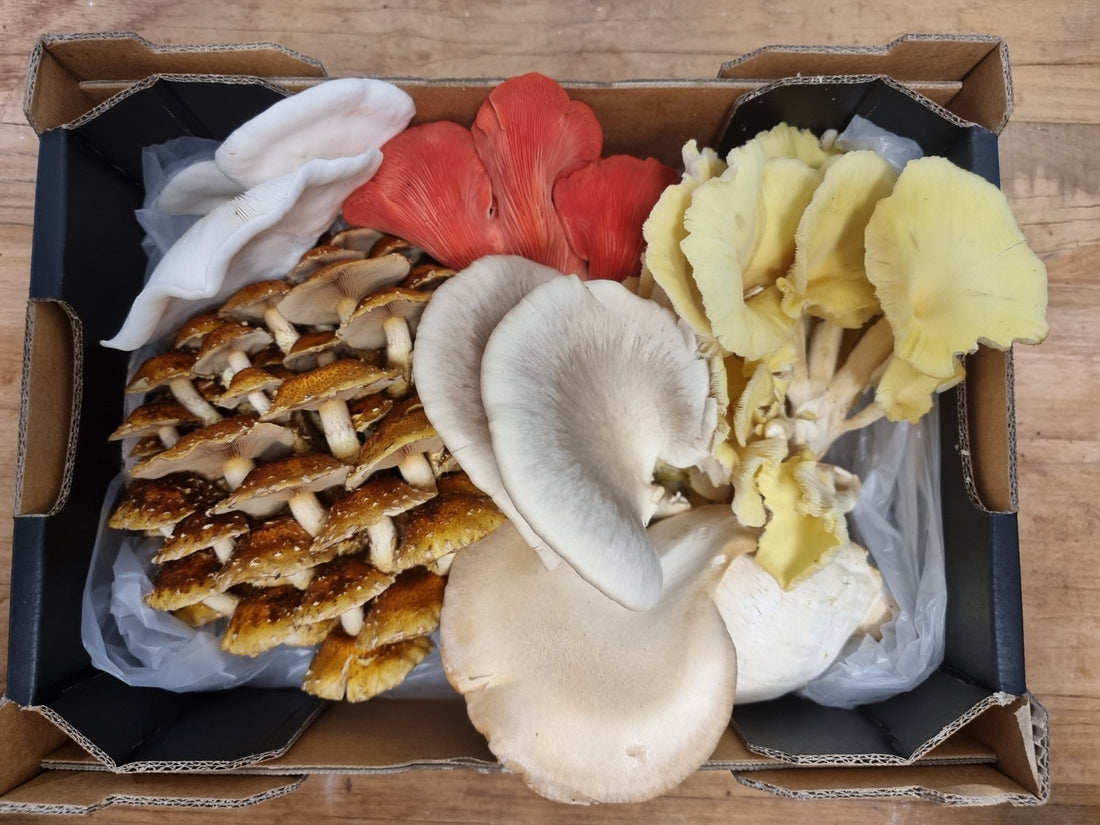Mushrooms, with their earthy flavor and diverse culinary uses, have been consumed by various cultures for centuries.
Not only do they add depth to dishes, but they also pack a nutritional punch.
However, like any food, moderation is key to reaping their benefits without experiencing adverse effects.
In this article, we'll explore the health implications of consuming mushrooms, the recommended daily intake, potential side effects, and tips for making them more digestible.
Can You Eat Too Many Mushrooms?
Yes, it is possible to eat too many mushrooms. However, while consuming edible varieties of mushrooms is generally considered safe, overindulgence may lead to digestive issues,weight gain due to calorie overload, or mild toxic effects. It's essential to be mindful of the type and amount consumed and to adhere to recommended daily intake guidelines.
Are Mushrooms Good For Health?
Mushrooms are more than just a tasty addition to your plate; they are a powerhouse of nutrients.
Rich in protein, fiber, vitamins, and minerals, they can play a role in enhancing your immune system, regulating blood sugar, and even reducing cholesterol.
The antioxidant properties found in mushrooms, like selenium and glutathione, help in maintaining a healthy body. However, moderation is key, as too much of anything can lead to problems.
Is It Ok To Eat Mushrooms Every Day?
Eating mushrooms daily is generally considered safe, particularly when it comes to edible varieties like chanterelles, morels, shiitake, lion’s mane, oyster mushrooms, and black pearl.
Including them in your meals can add nutritional value, but it's essential to be mindful of the type and amount consumed.
If you have underlying health conditions, consult with a healthcare provider to ensure that mushrooms align with your dietary needs.
How Much Mushroom Can I Eat Per Day?
The recommended daily intake of mushrooms varies based on factors like age, gender, and overall health. Generally, for adults, 3.5 ounces (100 grams) of mushrooms per day is considered a safe amount. Those with specific dietary requirements or health conditions should seek professional guidance to determine the appropriate portion size.
Pregnant women, the elderly, and those with weakened immune systems should seek guidance from their healthcare professionals to adjust their mushroom intake if necessary.
Properly cleaning mushrooms and sourcing them from reputable suppliers can help ensure their safety for consumption.
How Many Mushrooms A Day Is Too Much?
Determining a strict limit can be challenging as it depends on individual preferences and needs.
Overindulging in mushrooms can lead to digestive issues or mild toxic effects, particularly with wild or unidentified varieties.
It's best to follow general guidelines or consult with a nutritionist to tailor the intake to your unique requirements.
What Are The Side Effects Of Eating Too Many Mushrooms?
Consuming mushrooms in excess can result in unpleasant side effects, including nausea, vomiting, abdominal cramps, and diarrhea. In severe cases, consuming toxic mushrooms can lead to hallucinations, seizures, or other life-threatening conditions.
Moderation and proper identification of the type of mushroom are crucial to avoid these risks.
The presence of compounds like chitin and certain carbohydrates can make them difficult for the stomach to digest.
What Are The Disadvantages Or Side Effects Of Eating Mushrooms?
While mushrooms have many benefits, they are not without drawbacks.
Potential disadvantages include allergies, sensitivities, and the risk of ingesting toxic varieties.
Some mushrooms may also be high in sodium, contributing to health issues such as high blood pressure.
Some mushrooms are generally low in essential vitamins and minerals, so relying solely on them for nutritional needs may not provide adequate nourishment.
Certain wild mushrooms can be highly toxic and have deadly consequences if ingested. Proper identification or sourcing from trusted suppliers is essential when harvesting wild mushrooms.
Individuals with allergies or food intolerances should be cautious when consuming mushrooms, as they can cause allergic reactions, upset stomachs, and digestive issues. In severe cases, anaphylaxis, a life-threatening allergic reaction, may occur.
When Should You Not Eat A Mushroom?
Avoid consuming mushrooms if you cannot accurately identify them or if you're picking them in the wild without expert guidance. Misidentifying mushrooms can lead to accidental ingestion of toxic species. Individuals with known allergies to mushrooms should also avoid them altogether.
Are Mushrooms Hard On The Digestive System?
For some individuals, mushrooms may pose digestive challenges. The fiber content, while beneficial for most, can lead to bloating and discomfort in others.
How To Make Mushrooms More Digestible?
- Never Eat Your Mushrooms Raw: Cooking mushrooms not only enhances their flavor but makes them more digestible by breaking down tough cellular structures.
- Chew Your Mushrooms Well: Properly chewing mushrooms ensures that they are broken down, aiding digestion.
- Avoid Eating Mushrooms In The Evening: Eating mushrooms earlier in the day gives your digestive system ample time to process them without causing discomfort.
Final Thoughts
Mushrooms provide a delightful gastronomic experience and come with a host of health benefits.
However, mindful consumption, proper preparation, and recognizing individual dietary needs are key to enjoying mushrooms without adverse effects.
Always consult with a healthcare provider if you have specific concerns or dietary requirements, and remember, moderation is often the path to health and enjoyment.



















